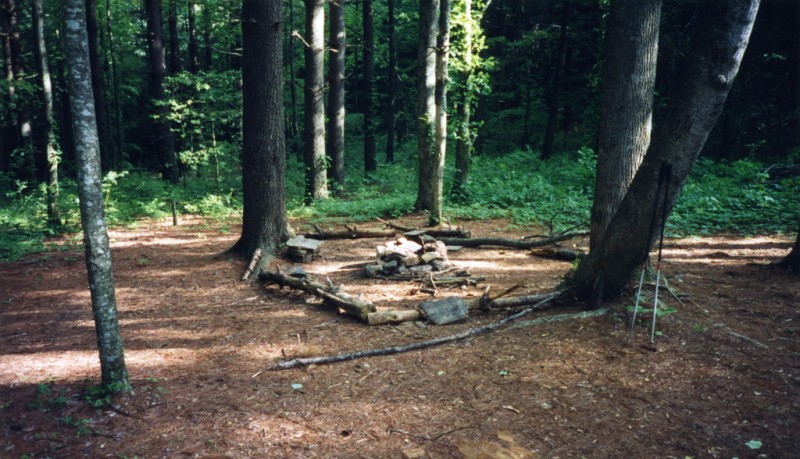
The last time you arrived at your campsite I hope I can assume it was clean and that you were supplied with all the amenities listed in the campsite description. The aged water spout (if you had one) wasn’t bent or broken. The fire pit wasn’t cluttered with left-over trash, just the usual ash. You didn’t find any random socks, or empty bottles from the previous campers.
If this was the kind of site at which you arrived, then take these small measures to do the camper after you the same favor. If this wasn’t the campground you encountered, then don’t propagate the wheel of ill fortune.
Here are step-by-step tips to make an efficient and clean exit.
Get all your gear out of the way first to make sure you have everything you came with. I’ve found it easiest to pack up the left-over food items first. That way food that is still good won’t sit out in the sun and these are the items that are likely not strewn about the campsite so they are easy to gather. Once that is packed away, take all your clothes out of the tent and pack away anything else that is in your personal pack i.e. your sleeping bag, toiletries, books, cameras.
Your tent should be the last thing you put away once you make sure it’s devoid of any loose objects inside. Fold the rain fly first, take out the stakes, then the poles, and lastly fold up the body of the tent as tight as you can and stow it in the car.
Now is the time when your campsite is clear and you have the time to scavenge the area for any lost or misplaced items.
Try to keep your trash to a minimum. It will make things easier on you and on the environment. Meaning throughout the stay try to reuse as many items as possible. Those that you cannot, try to periodically throw away so you don’t end up with big trash bags all at once. Otherwise, plastic plates and cutlery can definitely be washed if you didn’t bring metal or ceramic utensils. Even lightly used paper plates won’t kill you if you use them twice. When they’re beyond dirtiness, throw them in the fire to aid fire-starting. Food scraps can also be thrown into the fire, but better yet into a compost heap if you’re campground supplies one.
When your loose items like frisbees, shoes, towels and others are gathered and put away, check the campsite for remaining trash. Bring an extra plastic bag from a grocery store to collect it. Usually it’s best to routinely burn the things you throw in the fire pit, try not to toss anything in there if you know you won’t start the fire again.
One item of trash that will mostly likely end up at your campsite is bottles. Be it water bottles, beer bottles, plastic bottles after soft-drinks, we all need something to drink while outdoors and these are items most would throw away. Instead, do the environment another favor and recycle as much of that as you can. Some campsites recently began offering a recycle bin for plastic, paper and glass near the exit of the campground. If not, ask reception whether they would be willing to recycle some of those items for you or keep the returnable items where you can return the bottles at the nearest store on your way home.
Just remember how much easier and pleasant it is to come upon a fresh campsite where your mood isn’t immediately ruined by all the extra work you have to do to freshen it up yourself. Ultimately it is the job of the campground to manage each site, but keep in mind that they do it everyday and have probably more than a hundred sites to maintain. Packing efficiently and cleaning up thoroughly just encourages other campers to do so as well.
Photo: mcdowell on Flickr

 Your Privacy Choices
Your Privacy Choices
 The
The